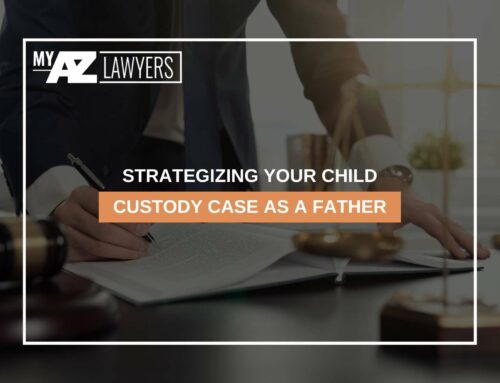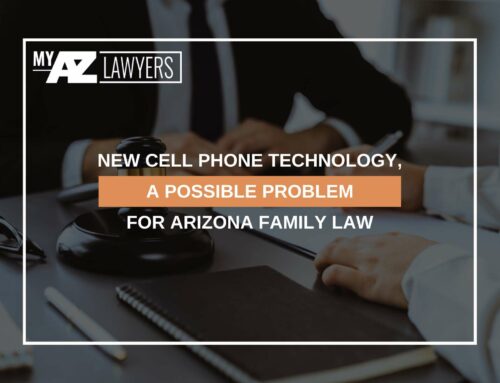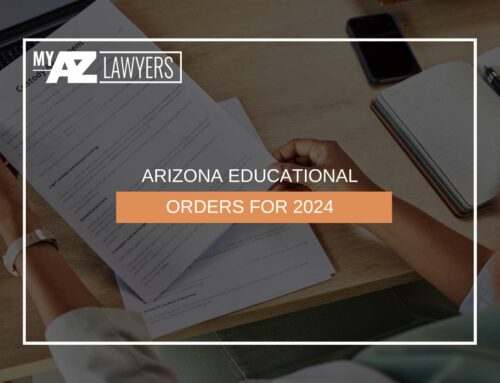Can Children From Other Relationships Affect Custody Matters?
Breaking Down How Children From Other Relationships Could Affect Custody Proceedings Because I Watch Too Much Reality Television & This Family Is Based In Flagstaff, Arizona
This member of My AZ Lawyers is addicted to the TLC channel, and despite not being allowed to watch it when it first came out, eventually got into the show Sister Wives. While I’ve missed several seasons, I had to watch from the current point when I learned that Christine- the third wife who was opposed to volunteering at a charity for women and families escaping polygamist cults in earlier seasons- had finally left Kody. Kody undeniably favors his fourth and youngest wife Robyn, enough that the children from each wife notice the favoritism. It is so shocking that a “spiritual marriage” involving one man, four women, and eighteen children wouldn’t work out. Anyway, Kody seems adamant that he be given 50/50 custody of his daughter with Christine so that she can’t move back to Utah from Flagstaff, Arizona. However, Christine is concerned because he barely spends time with their only minor daughter as is, while Christine will have community and support from her parents and family in Utah.
While most Arizona families won’t be splitting their time between 3 to 4 spouses, it’s very possible that blended families could include children from multiple relationships for each parent. Here, we’ll review the relevant issues that impact custody in Arizona for a better understanding of how they might apply to blended family situations. If you have additional questions about your Arizona custody situation, call My AZ Lawyers at 480-448-9800. If you’re involved in polygamy, plan some extra time in your schedule for your consultation.

Arizona Custody Presumptions & Factors
A child must reside in Arizona for at least 6 months for Arizona to have jurisdiction over custody and child support matters regarding the child. Many fathers come to us concerned that the court will automatically award custody to the mother, but there is actually a presumption that it is best to place the child as close to 50/50 with each parent as possible. But presumptions are rebuttable when considering the relevant factors. These factors are set forth by A.R.S. § 25-403.
- The past, present, and potential future relationship between the child and each parent
- If a parent is spread too thin by taking care of several children from other relationships, this could damage the relationship
- The interaction and interrelationship between the child and each parent’s parents, other children, and anyone else who could affect the child’s best interests
- If the child doesn’t get along with children from other relationships that live in the household, this could impact custody
- The child’s adjustment to home, school, and community
- If one parent is switching between three households (like Kody), this would provide a less stable living situation than a parent who only lives in one house
- At a suitable age and maturity level, the child’s wishes
- This is usually around age 12
- Everyone’s physical and mental health
- Which parent is more likely to allow the child to have a healthy relationship with the other parent
- Exception for domestic violence and abuse situations
- Whether either parent intentionally delayed or interfered with custody proceedings
- The presence of domestic violence or child abuse
- If a parent used coercion or duress during the custody proceedings
- If either parent has falsely reported abuse or neglect
- Any other factors deemed relevant to the child’s best interests
What Does This Mean For Blended Families?
Family law judges don’t expect parents to never move on from their previous relationships or have children with different people. However, if one parent’s new partner is a demonstrably bad influence, this can have bearing on custody proceedings. In the Browns’ case, Kody has only ever been legally married to one of the wives, there would not be a bigamy criminal offense at issue. However, if one parent were to move on with a boyfriend or girlfriend who is a convicted felon, especially one convicted of crimes against children, the judge will probably consider this during custody litigation.
Children from other relationships can also affect how the judge rules on custody matters. If multiple children from one relationship are bullying a child from another, that child will rightfully want to spend more time at the other parent’s house. The judge will probably agree. But normal sibling disagreements won’t be enough for the judge to keep a child away from their parent.
Arizona Child Custody Modifications
While judges aren’t eager to overturn their own orders, custody orders are never set in stone. Situations and lifestyles change, and it may be in the child’s best interests for orders to change along with them. The grounds for modifying child custody are set forth by A.R.S. § 25-411. A modification won’t be granted less than one year from the previous orders unless there is a reasonable belief that the child’s current living situation places their physical, mental, or emotional health in danger. An emergency custody modification hearing can be held at any time, not just more than one year from the previous orders. Otherwise, there must have been a substantial and continuing change in circumstances for the judge to consider modifying child custody. Decisions will be made considering the child’s best interests and using the factors described above.
Informal vs Formal Custody Agreements
Because of the costs and complexities of parenting children from multiple relationships, many families prefer to create informal custody agreements. These can work for exes that are amicable and prioritize their child(ren)’s welfare over all else. However, the main issue with informal custody agreements is that they aren’t court enforceable. That means if one parent doesn’t return the child on their scheduled day, or even takes the child out of state, you may have no legal recourse to have the police track them down. But if there are court orders from a judge, custody disputes can’t be ignored by the police and the family law court. While the process may be more costly and complicated, it can give you peace of mind knowing that there will be consequences if your ex suddenly decides to stop complying with your custody agreement.
Arizona Family Lawyers for Complex Custody Disputes
Blending families with children from multiple relationships can be difficult and stressful. Most people don’t have the legal training and knowledge adequate to assess all the potential issues in a custody matter, much less draft and file documents and argue them in court. That’s why if it’s crucial to you to achieve a favorable parenting plan, you should consider hiring an experienced Arizona family law firm. At My AZ Lawyers, our dedicated family law team can help you feel more comfortable and informed throughout the process so you go in with realistic expectations and come out with a parenting plan that will foster healthy relationships with your children. We do all of this at low rates with payment plans that make high-quality family law representation more affordable for the average family. Your initial case evaluation is also free of charge. To get the process started, call 480-448-9800 to schedule your free appointment with our team today.
Arizona Offices:
Mesa Location:
1731 West Baseline Rd., Suite #100
Mesa, AZ 85202
Office: (480) 448-9800
Email: info@myazlawyers.com
Website: https://myazlawyers.com/
Phoenix Location:
343 West Roosevelt, Suite #100
Phoenix, AZ 85003
Office: (602) 609-7000
Glendale Location:
20325 N 51st Avenue Suite #134, Building 5
Glendale, AZ 85308
Office: (602) 509-0955
Tucson Location:
2 East Congress St., Suite #900-6A
Tucson, AZ 85701
Office: (520) 441-1450
Avondale Location:
12725 W. Indian School Rd., Ste E, #101
Avondale, AZ 85392
Office: (623) 469-6603














